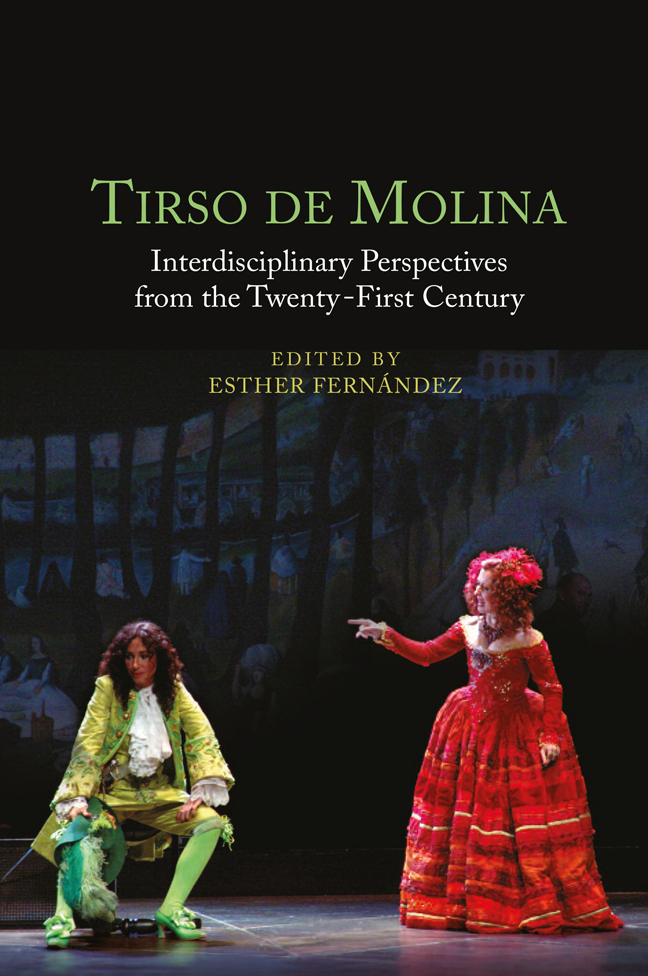Introduction: Reassessing Tirso for a Twenty-First-Century Audience
Published online by Cambridge University Press: 02 March 2024
Summary
If there is common ground that the authors in this book share, it is their genuine willingness to examine and rediscover Gabriel Téllez (1583–1648), known as Tirso de Molina, according to the interests and sensibilities of twenty-first-century readers and audiences and, among them, undergraduate and graduate students, literary scholars, and practitioners of global theater. To this end, the authors of this volume have collaborated to frame Tirso’s production and his persona within an interdisciplinary, multicultural, and transhistorical scope to demonstrate his contemporaneity and future projections, especially in relation to his dramatic works. The greater transcultural visibility of Lope de Vega and Pedro Calderón de la Barca in Spanish early modern theater has tended to outshine Tirso unjustly, partly because of his intermediary position between the two. Yet, it could be argued that this bridge position in the history of Spanish theater is what made Tirso an outstanding figure unique in his own right. Tirso’s deeply religious knowledge obtained from his time as a friar—and later chronicler—in the Mercedarian order to which he belonged made him particularly adroit in adapting the doctrine for the stage and articulating the sacred and the profane with masterly alacrity. His plays range from theological and biblical content to perceptive situations based on a deep reflection on the human condition and the society in which he found himself enmeshed.
Rather than approaching Tirso from historicist or philological perspectives, our volume relies on completing the foundational studies to date (e.g., biographies, critical editions, and literary analyses) mostly written in Spanish with new voices from cultural, material, and performance approaches to create multivariant frames for the Mercedarian friar’s life and works that further enrich his legacy with multidisciplinary interpretations attuned to the interests of the twenty-first-century reader. The intellectual approaches that we use to reinvigorate Tirso’s dramatic legacy take into consideration the ways in which the religious and secular contexts that surrounded our author left a distinctive imprint on his works and his characters as he adeptly created an organic, critical dialogue between the real and the fictional. Within this framework, we have prioritized the themes that we consider key within the playwright’s oeuvre to open up Tirso studies to the discipline of global theater as well as to a broader English-speaking audience.
- Type
- Chapter
- Information
- Tirso de MolinaInterdisciplinary Perspectives from the Twenty-First Century, pp. 1 - 6Publisher: Boydell & BrewerPrint publication year: 2023

